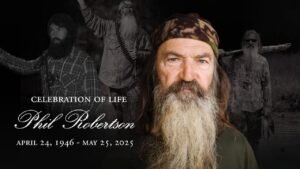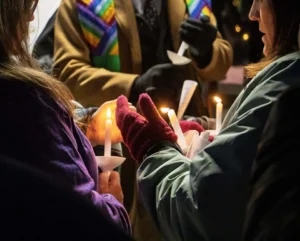Coco Rocha: Where Faith Meets Fashion

How one supermodel built a career without compromising her beliefs
When Coco Rocha was discovered at a dance competition at 14, she had no idea she was about to enter an industry that would challenge everything she believed in. Born in Toronto on September 10, 1988, and raised in a devout Jehovah’s Witness family, Rocha seemed an unlikely candidate for the often-superficial world of high fashion. Yet somehow, she didn’t just survive—she thrived, becoming one of the most respected voices in modeling while staying true to her faith.
A Foundation Built on Faith
Growing up as a Jehovah’s Witness meant Rocha’s childhood looked different from most. While other kids were planning weekend sleepovers, she was participating in door-to-door ministry with her family. The strict religious doctrines emphasized discipline, honesty, and community—values that might seem at odds with the fashion industry’s reputation for excess and image obsession.
But those early experiences gave Rocha something invaluable: unshakeable core values and exceptional communication skills. The same confidence that helped her talk to strangers about her faith would later help her command runways and boardrooms alike.
A Baptism That Changed Everything
At 21, Rocha made a decision that would define her path forward: she chose to be baptized. In the Jehovah’s Witness faith, baptism isn’t a casual commitment—it requires extensive study, deep reflection, and a thorough understanding of religious doctrines before taking the plunge.
For Rocha, this wasn’t just checking a religious box. It was a profound moment of clarity in the midst of a chaotic industry. “This decision provided me with a sense of direction and purpose,” she’s said, describing how her faith became an anchor when the modeling world threatened to pull her in directions she didn’t want to go.
The Art of Saying No
Here’s where things get interesting. How do you succeed in an industry built on saying yes to everything when your faith requires you to say no?
Rocha found out early that her beliefs would cost her opportunities. She’s turned down photoshoots, advertising campaigns, and jobs that conflicted with her values. In an industry where models are expected to be malleable and accommodating, her willingness to walk away from work made her an anomaly.
But here’s the twist: her integrity became her brand. By setting clear boundaries and sticking to them, Rocha showed the industry something it rarely sees—a model who knows exactly who she is and won’t compromise. That authenticity resonated far beyond religious circles.
Redefining Modesty on the Runway
Fashion loves extremes—the bolder, the more revealing, the better. Rocha’s faith emphasizes modesty and simplicity. The potential for conflict? Obvious. Her solution? Creative.
Rather than fighting against the industry’s aesthetic norms, Rocha learned to work within them selectively. She carefully chooses garments that align with her commitment to modesty while still fitting the creative vision of designers and photographers. It’s a delicate dance, but one she’s mastered with grace and professionalism.
Her approach challenges the assumption that you have to bare it all to make it in fashion. By advocating for diverse representations and proving that modesty and success aren’t mutually exclusive, she’s quietly redefining what’s possible in the industry.
Facing the Skeptics
Being openly religious in a secular industry comes with scrutiny. Media coverage of Rocha often focuses as much on her faith as her professional accomplishments, creating a complex narrative. Some celebrate her ability to balance both worlds; others question whether her religious choices limit her potential.
The tension between public persona and private belief is real. Rocha has to navigate expectations from both sides—an industry that wants her to conform to its standards and a religious community that expects her to uphold its values. Walking that tightrope requires constant vigilance and an unwavering sense of self.
Using Her Platform for Change
Rocha hasn’t just survived the fashion industry—she’s actively working to change it. She’s become a vocal advocate for diversity, body positivity, and representation, using her platform to challenge the narrow definitions of beauty that have long dominated modeling.
Her advocacy isn’t separate from her faith; it flows directly from it. The same values that emphasize inclusivity and acceptance in her religious life inform her push for a more compassionate, diverse fashion industry. Through mentoring programs, speaking engagements, and workshops, she guides aspiring models to embrace their unique identities rather than conform to cookie-cutter standards.
What Success Really Means
Ask Rocha about success, and you won’t hear the typical industry answer about covers, campaigns, or contracts. For her, success is deeply intertwined with self-acceptance and staying true to her beliefs despite external pressure.
“Fulfillment doesn’t come from accolades or recognition,” she reflects. In an industry obsessed with external validation, that’s a radical statement. Her faith teaches her to find beauty in authenticity—a message that resonates with followers far beyond the fashion world.
This holistic approach to life and career has made her a role model not just for aspiring models, but for anyone trying to navigate the tension between personal convictions and professional demands.
The Power of Integration
Coco Rocha’s story isn’t about choosing faith over fashion or fashion over faith. It’s about the radical act of refusing to choose—of insisting that all parts of her identity can coexist.
In doing so, she’s created space for others to do the same. Her journey sends a powerful message: you don’t have to sacrifice your beliefs or background to succeed. You don’t have to compartmentalize yourself to fit into professional spaces. Integration, not compromise, is the path to authentic success.
Her career proves that the fashion industry, for all its reputation for superficiality, can accommodate depth, conviction, and faith—if you’re brave enough to demand it.
A Legacy of Authenticity
Today, Rocha continues to evolve, challenging herself and others to embrace their multifaceted identities without apology. She’s proven that true success isn’t about fitting into someone else’s mold—it’s about having the courage to break the mold entirely.
For young models facing similar tensions, for people of faith in secular industries, for anyone trying to stay true to themselves in spaces that demand conformity, Rocha’s journey offers both inspiration and instruction. The path isn’t easy, but it’s possible.
And maybe that’s the most important lesson of all: you can pursue your calling without compromising your soul. You can be successful and sincere, ambitious and authentic, fashionable and faithful. Coco Rocha isn’t just modeling clothes—she’s modeling a way of being in the world that refuses to accept false choices between who we are and who we want to become.












